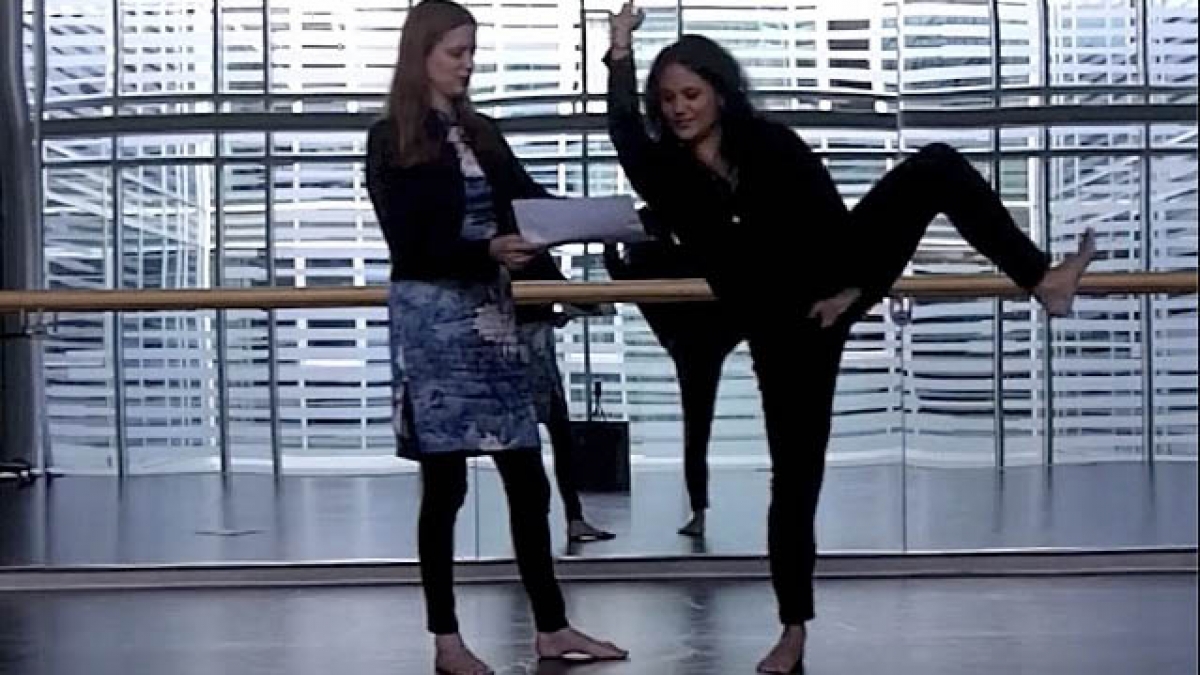Project funded by Centre national de la danse (CND Pantin / France) Aide à la Recherche et au Patrimoine en Danse in cooperation with the Project Border-Dancing Across Time (Austrian Science Fund, University of Salzburg – Department of Music and Dance Studies) and Tanzquartier Wien.
For the interdisciplinary research project Contemporary Reflections on Nyota Inyoka the team of Border-Dancing Across Time will be joined by Mexican-Chilean-Austrian choreographer Amanda Piña for a shared process of moved/movement reflection on and re-embodiment of Nyota Inyoka’s work with German-Indian choreographer-scholar Sandra Chatterjee. The two contemporary female choreographers of color are engaged in critical processes concerned with post- and decolonial theories and practices. The exchange will be based on an engagement with materials available at the Fonds Nyota Inyoka at Bibliotheque Nationale de France (BnF), focusing mostly Inyoka’s notations, photos, sketches and writings from contemporary ‘of-color’ perspectives in dialogue with the primarily theoretical and dance historical research project Border-Dancing Across Time.
In addition, Contemporary Reflections on Nyota Inyoka will establish interdisciplinary dialogues with experts from literature (Prof. Dr. Sneharika Roy) and Indian dance practice (Malavika Klein – former dancer in Nyota Inyoka’s corps de ballet).
In the course of their research process, they will physically respond to Inyoka’s dances and work based on the traces left by Inyoka’s notations and sketches and self-archived evidences of her œuvre, enriched by the interdisciplinary discussions. Inyoka’s early work is paradigmatic for European modernity’s fascination of ‘otherness’ and ‘the exotic’, while her later, lesser known, work dives deeply into Indian and Egyptian systems of movement classification, theories of yoga and aesthetic concepts – conceptually likely at a distance from the developments of European modern dance as well as classical dance in India post WWII. Her later work appears to be asynchronous with mainstream European dance history, leading to the marginalization of her œuvre in its transmission and official archives. Until today, contemporary dance, in line with colonial modernityoften functions by way of othering or excluding culturally or ethnically marked dances or dancers, as well as movement systems, systems of composition and aesthetic principles (cp. Chatterjee 2017/2018 + nadaproductions Endangered Human Movements Vols 1 ,2 & 3 , 2017, 2018, 2019).
Sandra Chatterjee and Amanda Piña have both in their own ways in multiple projects engaged with the exclusions reproduced in European contemporary dance as a colonial/modern context and tried to contribute to processes of decolonizing contemporary dance practices and institutions. In this project they will come together to respond each from their own perspective to Inyoka’s work. Their contribution lies in the forms of embodied knowledge present in dance practice and in their long term artistic reflections and positioning in relation to their bodies, gender in the context of whiteness. Nyota Inyoka’s authorial position can be paradigmatic to better understand contemporary ethics and politics in research and historiography, as well as reassess our current understanding of European cultural and aesthetic landscapes.
The project will take place between October 2020 and February 2022 with exchange phases in Paris (BnF and CND), Vienna (Tanzquartier Wien) and Salzburg (University of Salzburg – Department of Music and Dance Studies)
